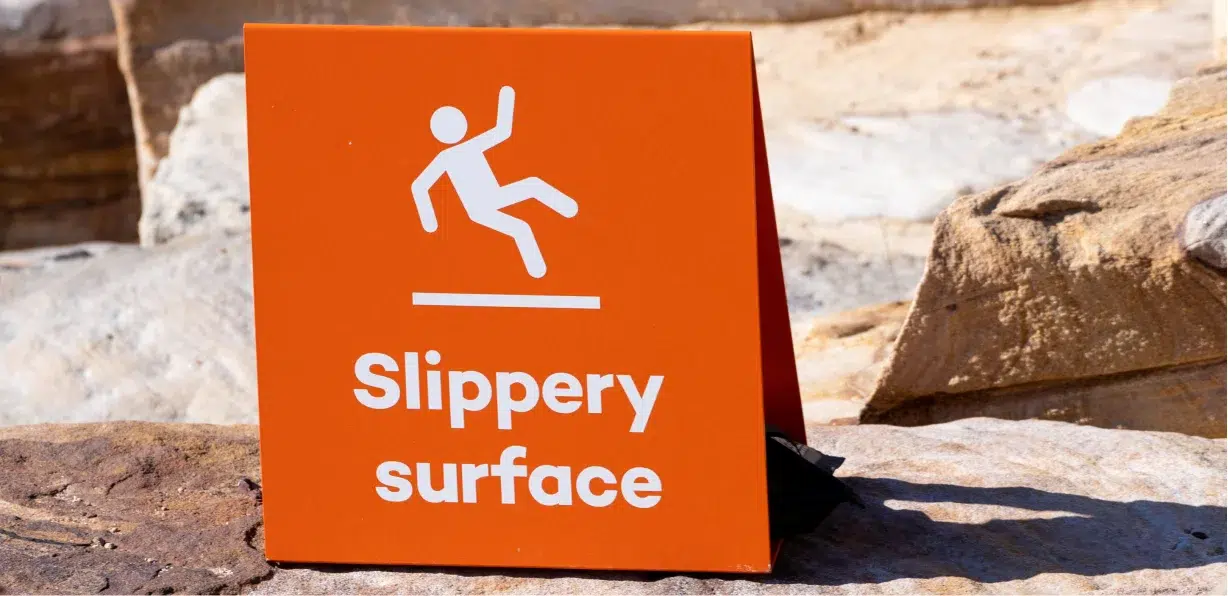Accidents happen and sometimes cause injury. That’s just a fact of life. But what happens when the accident was due to negligence and your injury requires medical attention, extensive treatment, and even surgery? What happens, then?
Texas law has certain liabilities and requirements for property owners when someone is injured on their property. Some examples include:
- You fall at a friend’s house because the railing on his porch steps is broken
- You experience a slip-and-fall at the grocery store
- A freak accident causes a ride to malfunction at an amusement park
Any of these situations could be grounds for filing a premises liability claim.
Filing a premises liability claim can be overwhelming. There’s a lot to deal with, insurance companies, attorneys, and investigators, when you should focus on healing and getting your life back to normal. That’s where a knowledgeable, compassionate, experienced premises liability lawyer or attorney can make a difference.
Overview of Premises Liability Laws in Texas
Two primary Texas laws cover premises liability claims.
- Civil Practice and Remedies Code: Title 4: Chapter 75: Limitations of Landowners’ Liability
- Civil Practice and Remedies Code: Title 4: Chapter 95: Property Owner’s Liability for Acts of Independent Contractors and Amount of Recovery
These two laws outline the responsibility of property owners when someone is injured on their property.
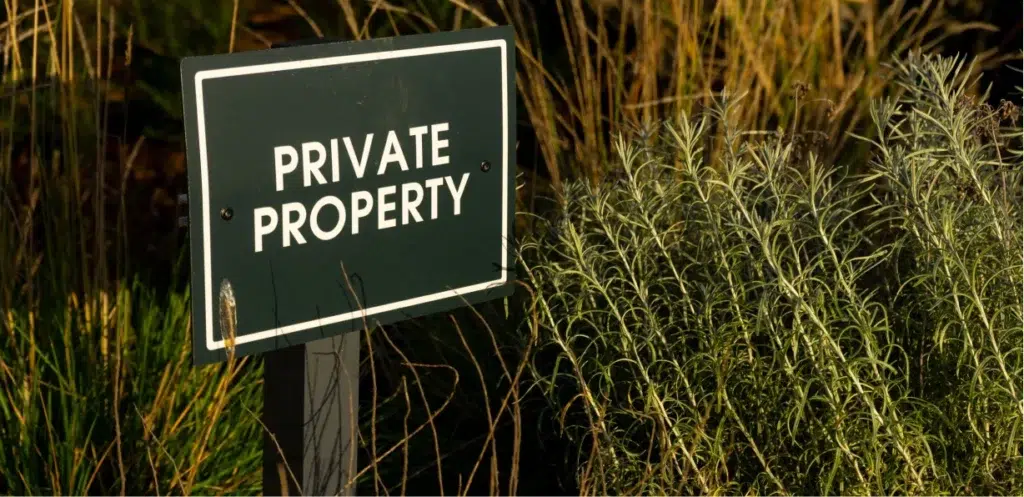
Who Is at Fault?
Texas premises liability laws name the owner of the property as the responsible party when there is an accident or injury on private property. This applies to an individual’s home or personal property and businesses, although the duty of care may differ due to various circumstances surrounding the incident. For instance, if the property owner knew that there was a problem and neglected to repair or correct it and someone was hurt, they could face a more extensive lawsuit.
Why Should I Call AMS Law Group for Help with My Premises Liability Case?
The experienced Fort Worth premises liability lawyers at AMS Law Group are ready to handle your personal injury claim and help you get fair compensation for your injury or loss. Call today to schedule your free consultation and get a liability lawyer who understands how the courts work and knows how to get the highest compensation for lost wages, medical bills, and more.
Our Fort Worth Premises Liability Lawyers Will Fight to Recover Compensation for All of Your Injuries
If you were hurt in an accident by no fault of your own due to someone else’s negligence, you could be eligible to seek compensation for your injury. Call our law firm today and schedule your free consultation. You’ll get connected to an experienced lawyer that can help you get what you deserve.
What Types of Damages Are Available to Victims in a Premises Liability Case?
Suppose you have been injured at someone’s home or business because of negligence or intentional wrongdoing by the owner. In that case, you may be entitled to take legal action and be compensated for your damages.
Do you have injuries stemming from an accident? You may be entitled to compensation for your losses, including:
- Compensatory damages
- Medical expenses
- Inconvenience
- Loss of wages/future earnings
- Pain and suffering
- Loss of consortium
- Property damage
- Emotional distress
- Impairment of quality of life
- Funeral and burial expenses
- Punitive damages
There may be other types of compensation, depending on the specific elements of your case and the judge’s discretion.
Limits On Damages
Texas law does have caps on how much you can sue someone for punitive damages. The limit is EITHER $200,000 OR twice the amount of your compensatory damages, whichever amount is greater.
In a lawsuit against a government entity, the damage cap is:
- $250,000 per person
- $500,000 per accident
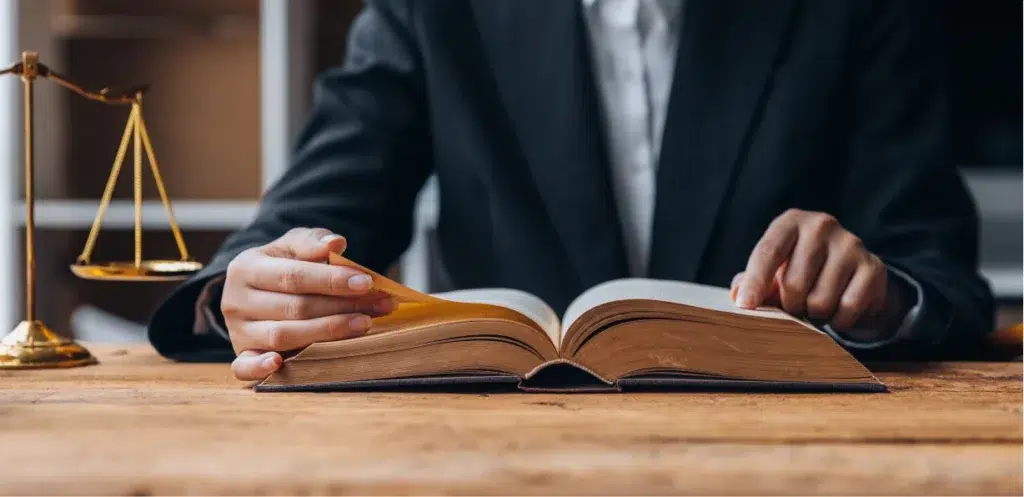
The possessor’s legal duty depends on the visitor’s status. Texas premises liability law puts visitors into three categories.
Texas premises liability laws categorize people who come onto someone’s property and assign different and distinct degrees of responsibility to that property owner.
Invitees – A person invited onto the property for a lawful purpose. This includes visitors the owner invited into their home and customers, vendors, or job applicants at a business. Also, visitors at a public park while the park is officially open. Property owners are responsible for providing the highest degree of care to invitees.
Licensees – A person allowed to be on the premises with the property owner’s consent for their benefit. This includes someone the owner permitted to park their 18-wheeler while not out on a haul or a person they let camp, hunt, or hike on their land. It can also be a utility company that has been allowed on the property to make repairs to equipment like lines or pipes. Property owners are responsible for providing reasonable care for licensees to protect them from any known hazards on the property.
Trespassers – A person who is not allowed or authorized to be on the premises or has no legal right to access the property. The owner of the property has no duty to protect trespassers. However, they are not legally allowed to willfully injure trespassers either.
Gross Negligence Standard of Proof
In any personal injury case in Texas based on gross negligence, the injured plaintiff must prove the four elements of ordinary negligence plus two additional ones.
- Four Elements of Ordinary Negligence
- Duty to cause no harm
- Breach of that duty
- Causation of the injuries or loss in the incident
- Damages the losses and relief incurred by the incident
- Additional Elements for Gross Negligence
- Objective Test – The defendant knew that the action he or she took was hazardous but did not care.
- Subjective Test – The defendant was aware of the risk involved but did it anyway without regard for the safety and rights or the welfare of others.
AMS Will Pursue All Available Damages
When you file a premises liability lawsuit, you need an experienced attorney who understands the law and can help you recover money and other losses you incurred due to the accident. The legal team at AMS has the knowledge, skill, and experience you need to effectively handle your case and get you the compensation you deserve. At your free initial consultation, we will review your case and advise you of your legal options, such as if the insurance company or owner of the proper is liable for your injury or loss or if the owner failed to keep the property safe when you had a right to be on it.
Call today to take the first step toward getting the settlement you deserve.

What Types of Dallas Premises Liability Cases Do We Handle?
Our premises liability lawyer and attorneys handle several cases related to premises liability claims. If you have a case and would like solid legal representation that you can trust, we can help you.
Premises Liability When Children Sustain Injuries on the Property
Property owners have a responsibility under Texas law to maintain their property in such a way that a child who wanders onto it cannot get hurt. Of course, there will be times when accidents cannot be avoided, but the owner must follow the attractive nuisance doctrine. Failure to do so could increase their liability.
Attractive Nuisance Doctrine – The law defines attractive nuisance as any artificial feature of a property that presents a high risk of danger. These features can include:
- Rooftops
- Pools
- Old non-functional refrigerators
- Outdoor Equipment
- Fountains
- Junk Cars
- Landscaping
- Wells
- Scaffolding
- Ladders
Premises Liability For Recreation On Agricultural Lands
The Texas Recreational Use Statute (RUS) limits the liability of landowners with non-agricultural, private land used for recreational purposes. Suppose the owner permits people to enter their property for fishing, camping, hiking, or other recreational activities. In that case, they do so without ensuring the property is safe. Additionally, they don’t owe these guests any duty of protection. The owner is released from any liability for injuries that the guest incurs while on the property.
However, if the owner of the property charges a fee for people to use or access their land, the RUS may not apply. The total fees that the owner charges for the use and access of the property for the previous calendar year cannot exceed the amount that is twenty times the property tax for the previous tax year.
Premises Liability for Recreation on Government Property
The RUS also applies to governmental entities. Suppose a person enters property owned, maintained, or operated by a governmental unit, and they do so for recreational purposes. In that case, the governmental unit does not owe the individuals a more significant duty of protection than they would owe a trespasser.
However, they are legally required to post a readable sign in a location that is clearly visible near or directly on the property:
WARNING
TEXAS LAW (CHAPTER 75, CIVIL PRACTICE AND REMEDIES CODE) LIMITS THE LIABILITY OF A GOVERNMENTAL UNIT FOR DAMAGES ARISING DIRECTLY FROM HOCKEY, IN-LINE HOCKEY, SKATING, IN-LINE SKATING, ROLLER-SKATING, SKATEBOARDING, ROLLER-BLADING, PAINTBALL USE, OR SOAP BOX DERBY USE ON PREMISES THAT THE GOVERNMENTAL UNIT OWNS, OPERATES, OR MAINTAINS FOR THAT PURPOSE.
When you file a premises liability lawsuit, you need an experienced attorney who understands the law and can help you recover money and other losses you incurred due to the accident. The legal team at AMS has the knowledge, skill, and experience you need to effectively handle your case and get you the compensation you deserve. At your free initial consultation, we will review your case and advise you of your legal options, such as if the insurance company or owner of the property is liable for your injury or loss or if the owner failed to keep the property safe when you had a right to be on it.
Call today to take the first step toward getting the settlement you deserve.
Premises Liability to Licensee
The controller or owner owes to a licensee a duty of ordinary care which means repairing or making dangerous conditions safe. If that is not possible, they can provide guests with an adequate warning of any present dangerous conditions or hazards. The owner does not owe a duty to inspect the property. A licensee who was injured on a property and has started a premises liability case is required by law to show that the owner had knowledge of the hazard or dangerous condition that was the cause of the injury. If the licensee knew about the risk of danger from the hazardous condition or of the dangerous situation, they are not eligible to recover damages for the injuries they sustained.
Premises Liability for Electric Companies
Negligent utility companies can cause property damage. Damages to property by a utility company may be property damage that can be pursued in court. There is a utility easement on private property for all utility companies. The utility is not liable if a structure is built on that easement or a vehicle is parked there. However, if water pipes burst under your driveway, causing it to buckle, you may have a case.
Premises Liability for Community Gardens
The owner of the property where a community garden is situated gives permission to people to use the land for a neighborhood or community garden. They are not required by law to ensure the safety of the property and do not have liability or responsibility for damages, injury, or death that happens to a person who accesses the property to use it as a community garden. Attractive nuisance does not apply. However, the owner is liable if he or she is responsible for injury or loss due to willful or wanton acts of gross negligence.
Slip And Falls
Slip and fall accidents are prevalent in Texas. In most cases, the owner of the property has a duty to prevent accidents by identifying and remedying any dangers or serious hazards on the property. If they cannot or will not remedy these hazards, they must warn people about them.
Workers Compensation Benefits
If you have been hurt in an accident at work, you could be eligible for worker’s compensation benefits. A worker’s comp lawyer can help you get money for your medical bills, expenses, loss of wages, and more, depending on the circumstances of the injury.
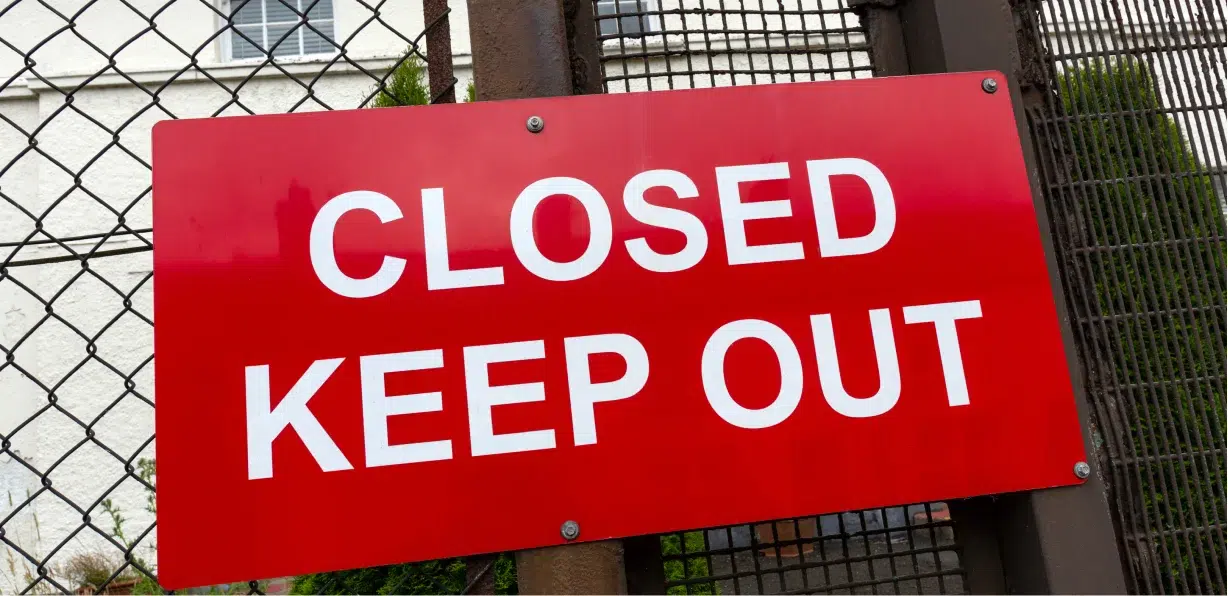
Premises Liability: Trespassers
Texas law does not hold the property owner liable if someone is hurt while trespassing on that property. The owner does not owe a duty of care to anyone on the property illegally or without authorization (trespassers). If a trespasser is hurt, the property owner is not liable unless they committed gross negligence or willful or wanton conduct that led to the injury.
Can I Recover Damages If I’m Being Blamed for Getting Hurt on Someone Else’s Property in Texas?
If you are hurt on someone else’s property, you may be able to recover damages. There are certain things you will be required to prove depending on the nature of your visit (were you an invitee, a licensee, or a trespasser?) and the circumstances surrounding your visit.
If the property owner places all or part of the blame on you, you can still move forward with your Fort Worth premises liability case, but if you cannot prove that you weren’t at fault in all or in part, it can affect your settlement. Even showing you had partial responsibility for the accident can make a substantial dent in the compensation you receive.
How Do I Prove I’m Entitled to Compensation from a Negligent Property Owner in Texas?
When you seek damages after being hurt on someone else’s property, your liability lawyer will conduct an investigation to gather evidence proving the property owner owes you compensation for your injury because they were negligent.
There are four steps to proving that there was negligence:
- Establish that the property owner had a duty of care. Meaning they are responsible for keeping their property free from hazards or posting highly visible warnings about hazards.
- Show that the injury was due to the property owner’s negligence in failing to uphold their duty of care. They either did not make repairs to make the property safer or did not post adequate warnings.
- Show how the property owner’s negligence caused the injury.
- Show how your injuries caused damage to you. Demonstrate how the injury led to ER care, an ambulance ride, burn care, rehabilitation, and lost wages.
Your premises liability lawyer will help you by doing their own investigation and talking to you about the circumstances surrounding your case. Then they will present that information in court.
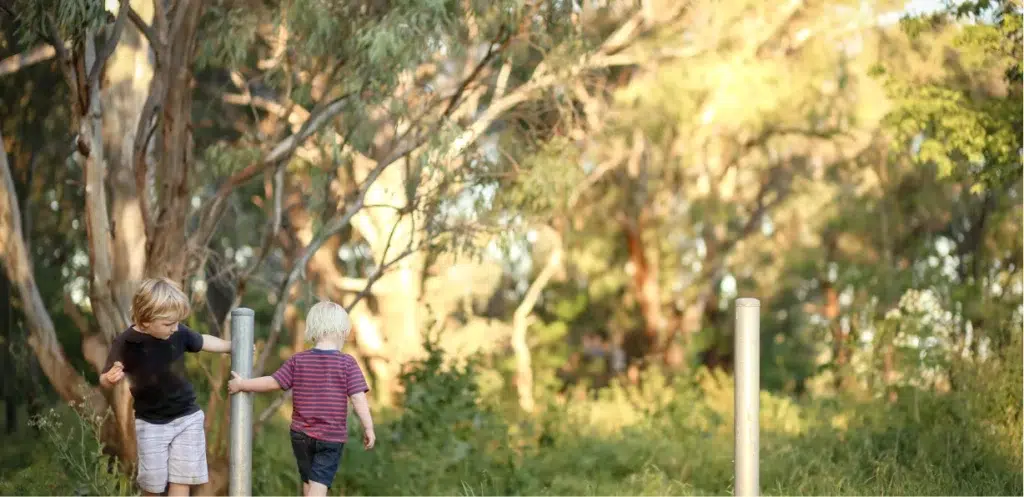
Child Trespassers and the Attractive Nuisance Doctrine
Child trespassers are not held to the same standard of responsibility as adults, even when trespassing. The law has specific requirements in place, and property owners must make certain provisions if they have what is called “attractive nuisances” on their property.
Property owners are required to secure these attractive nuisances because they are hazardous, and the owner should be aware of that and take steps to make it safer. This can include:
- Putting a fence with a locking gate around a swimming pool
- Locks or chains on a discarded refrigerator to prevent children from getting trapped inside
- A cover on a well
- Removal of ladders or anything near the house so a child can’t climb on the roof
They could be liable if the property owner did not take steps like this to secure their property.
Willful Or Wanton Acts and Gross Negligence
Willful and wanton negligence and gross negligence are standards of proof required under Texas civil law to prove that a property owner is liable for injuries sustained on their premises. It must be proven that the property owner had subjective knowledge of issues or hazards on the property, yet they did not remedy them.
Gross negligence describes the actions of the property owner, who was well aware of the unreasonable risk and hazards yet acted in a way that showed blatant disregard for others’ safety.
Exception For Willful and Wanton Actions and Gross Negligence
There are some exceptions to premises claims against the government, even if there is what appears to be negligence involved. The exceptions are:
- School districts
- Discretionary activities
- Safety officers
- Emergency responders
The government will typically not be held liable if someone is hurt due to any of these. The only exception is if there was blatant negligence that could have been avoided.
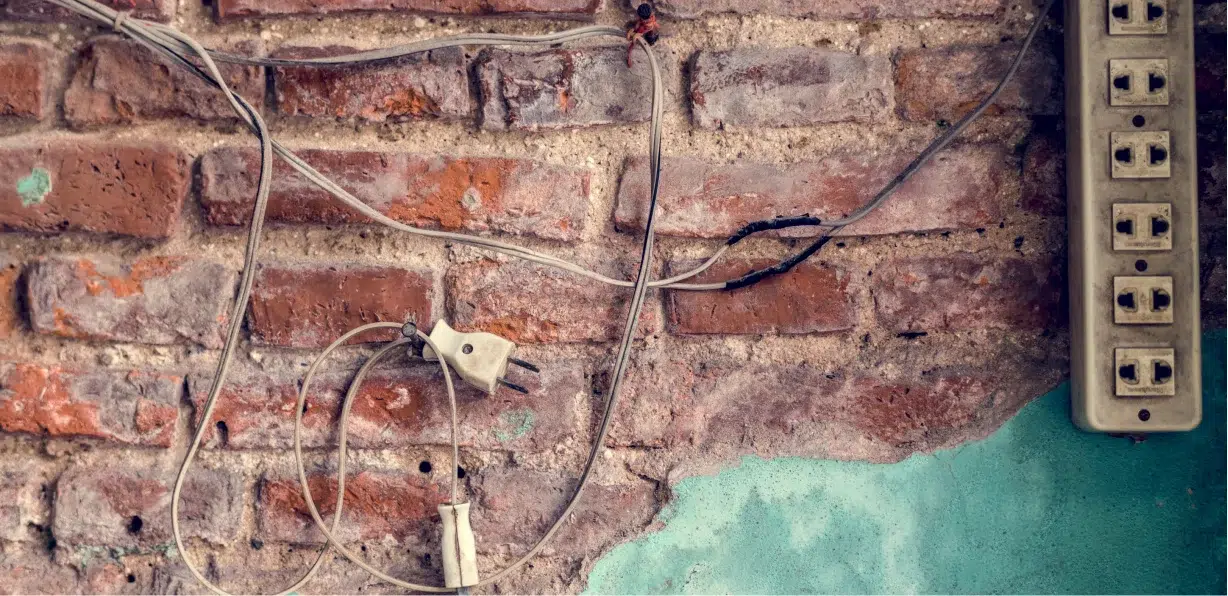
Can You Sue a Business Owner for a Slip and Fall Accident?
You may be able to sue a business owner, depending on the circumstances of the incident. The first step, though, is deciding who to sue. If the business property is leased, you must determine if you should sue the landlord who owns the property or the business. Here’s how to know:
- Landlord or property owner – The dangerous condition or hazard has to do with the actual property or the building’s structure, such as repairing potholes in the parking lot.
- Business – The dangerous condition or hazard has to do with the store’s daily operation, such as cleaning.
In some cases, you may be able to sue both the landlord and the business.
Statute of Limitations for Premises Liability Cases in Fort Worth
You must act fast if you are injured and want to sue the property owner. Texas has set a deadline for filing premises liability cases. This is called the statute of limitations, typically two years from the date of the incident. If you don’t file your claim within that time, you probably will not be able to recover compensation for your injury.
Liability Limited for Actions of Firefighter, Federal Law Enforcement Officer, Or Peace Officer
The law protects landowners from liability when firefighters or law enforcement are on their property. In these cases, the law does not hold the property owner liable. Three legally defined situations could cause liability due to the actions of firefighters, law enforcement, or other officials.
- Firefighter or law enforcement presence caused livestock to escape, and damages came from that action (either on the landowner’s property or off).
- Law enforcement or peace officers cause damage when entering the property, or damages come from that action.
- Law enforcement activity caused other people to come onto the property, and damages resulted.
In these situations, the landowner is only liable for damages or injuries from their negligence or willful or wanton conduct.

We Handle All Types of Premises Liability Claims in Fort Worth, Texas
At AMS Law Group, we handle all claims relating to premises liability, including traumatic brain injury, slip and fall, and more. If you are an injured person through no fault of your own from an accident on someone else’s property or at a business, let’s talk. We have a proven track record and many satisfied clients to back it up. Exercise your legal rights to get compensation for your losses and damages.
Call AMS Law Group for Premise Liability Dallas Fort Worth and Get the Compensation You Deserve
Call today for your free consultation and case review. We will look over your case, advise you of your right to pursue legal action and discuss the next steps you need to take. And when you bring us onto your team, we will fight for your rights and get you the compensation you deserve.


